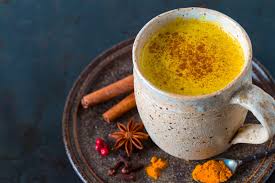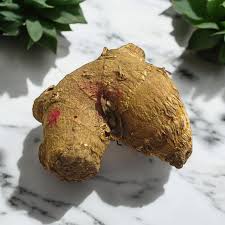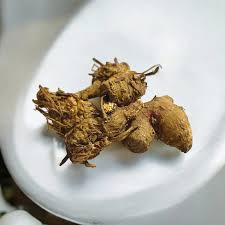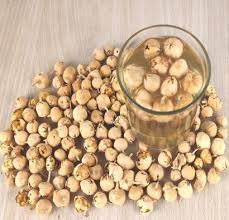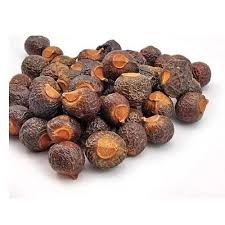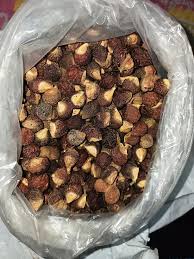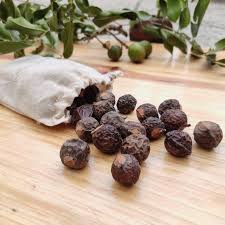
Babchi Seed & Ayurveda: A Natural Solution for Skin Health
In the world of natural healing and Ayurveda, Babchi Seed—also known as Bakuchi or Psoralea corylifolia—holds a special place for its incredible skin rejuvenation properties. Rooted deeply in traditional Ayurvedic practices, Babchi has been used for centuries to treat a wide array of skin conditions such as psoriasis, vitiligo, eczema, acne, and pigmentation disorders. At Dirghaanshi, we are committed to exploring powerful herbs that enhance beauty and health naturally—and Babchi seed is one such jewel of ancient Indian medicine.
Whether you are battling stubborn skin ailments or seeking a natural glow from within, Babchi Seed offers a holistic, side-effect-free solution that works in harmony with your body. Rich in bioactive compounds like psoralen and bakuchiol, it supports the skin’s natural healing process, evens out complexion, and promotes healthy, youthful skin.
In this detailed guide, we delve into the Ayurvedic benefits, traditional uses, and modern applications of Babchi Seed for skin health, ensuring you have all the insights needed to include this herbal remedy in your skincare routine.
✅ Long Description (approx. 800+ words)
🔶 What is Babchi Seed?
Babchi, scientifically known as Psoralea corylifolia, is a powerful herb widely used in Ayurvedic, Unani, and Chinese medicine. The seeds of this plant are small, brown, and packed with medicinal properties. In Ayurveda, Babchi is considered a Rasayana (rejuvenator) and is used to balance Kapha and Vata doshas. It primarily supports the skin, liver, and reproductive system, making it a versatile herb in traditional medicine.
🔶 Key Ayurvedic Properties of Babchi Seed
Rasa (Taste): Katu (Pungent), Tikta (Bitter)
Guna (Quality): Laghu (Light), Ruksha (Dry)
Virya (Potency): Ushna (Hot)
Vipaka (Post-digestive effect): Katu (Pungent)
Effect on Doshas: Pacifies Kapha and Vata; may aggravate Pitta if used excessively
These properties make Babchi an excellent detoxifier, skin toner, and natural healer that works at a deep cellular level.
🔶 How Babchi Seed Benefits Skin Health
- ✅ Treats Vitiligo and Hypopigmentation
Babchi seeds are best known for their ability to treat leucoderma (vitiligo)—a condition that causes loss of skin pigmentation. The compound psoralen stimulates melanin production, helping to restore natural skin color over time. - ✅ Relieves Psoriasis and Eczema
Babchi possesses strong anti-inflammatory and antimicrobial properties, making it effective in managing chronic skin issues like eczema and psoriasis. Its cooling yet healing action soothes irritation, reduces redness, and helps regenerate healthy skin cells. - ✅ Reduces Acne and Pimples
With its antibacterial nature, Babchi seed helps fight acne-causing bacteria and unclog pores. It also reduces excessive oil production, helping prevent future breakouts. - ✅ Improves Skin Tone and Texture
The active compound bakuchiol is often compared to retinol but without harsh side effects. It boosts collagen production, smoothens skin texture, reduces fine lines, and improves skin elasticity—giving you a youthful glow naturally. - ✅ Removes Scars, Blemishes, and Sun Tan
Babchi is a powerful skin brightener. Its regenerative properties help in fading scars, sunspots, and dark patches, making the complexion even and radiant.
🔶 Traditional Ayurvedic Uses of Babchi
Babchi Taila (Oil): Often applied topically on affected skin areas in diluted form.
Babchi Powder: Consumed internally in small quantities with honey or warm water under professional guidance.
Lepa (Paste): Made by grinding seeds and applying the paste for localized treatment.
💡 Note: Always consult an Ayurvedic practitioner before internal use, as Babchi is potent and may cause Pitta imbalance if not used properly.
🔶 Modern Skincare Applications
With the rising interest in herbal skincare, Babchi has made its way into modern formulations:
Babchi-based face oils and serums
Organic skin creams for pigmentation and blemishes
Natural sunscreens containing bakuchiol
Ayurvedic anti-aging skincare products
Thanks to bakuchiol, a natural alternative to retinol, Babchi is gaining popularity in global skincare routines, especially among those seeking gentle, plant-based solutions.
🔶 How to Use Babchi Safely for Skin Health
Always do a patch test before applying Babchi oil or paste.
Dilute Babchi oil with a carrier oil like coconut, sesame, or almond oil.
Avoid direct sunlight after application, especially if using psoralen-rich preparations.
Do not ingest seeds without professional guidance.
Pregnant or lactating women should consult a doctor before use.
🔶 Conclusion
Babchi Seed is a gift from nature—trusted by Ayurvedic experts for centuries and now validated by modern skincare science. Its potent healing, pigmentation-correcting, and rejuvenating properties make it an excellent addition to your natural skincare regimen.
At Dirghaanshi, we believe in the power of Jadi Buti and traditional herbs to restore balance and bring out the true glow of your skin—safely and naturally. With Babchi seed, you don’t just treat the symptoms; you nourish your skin from within.




